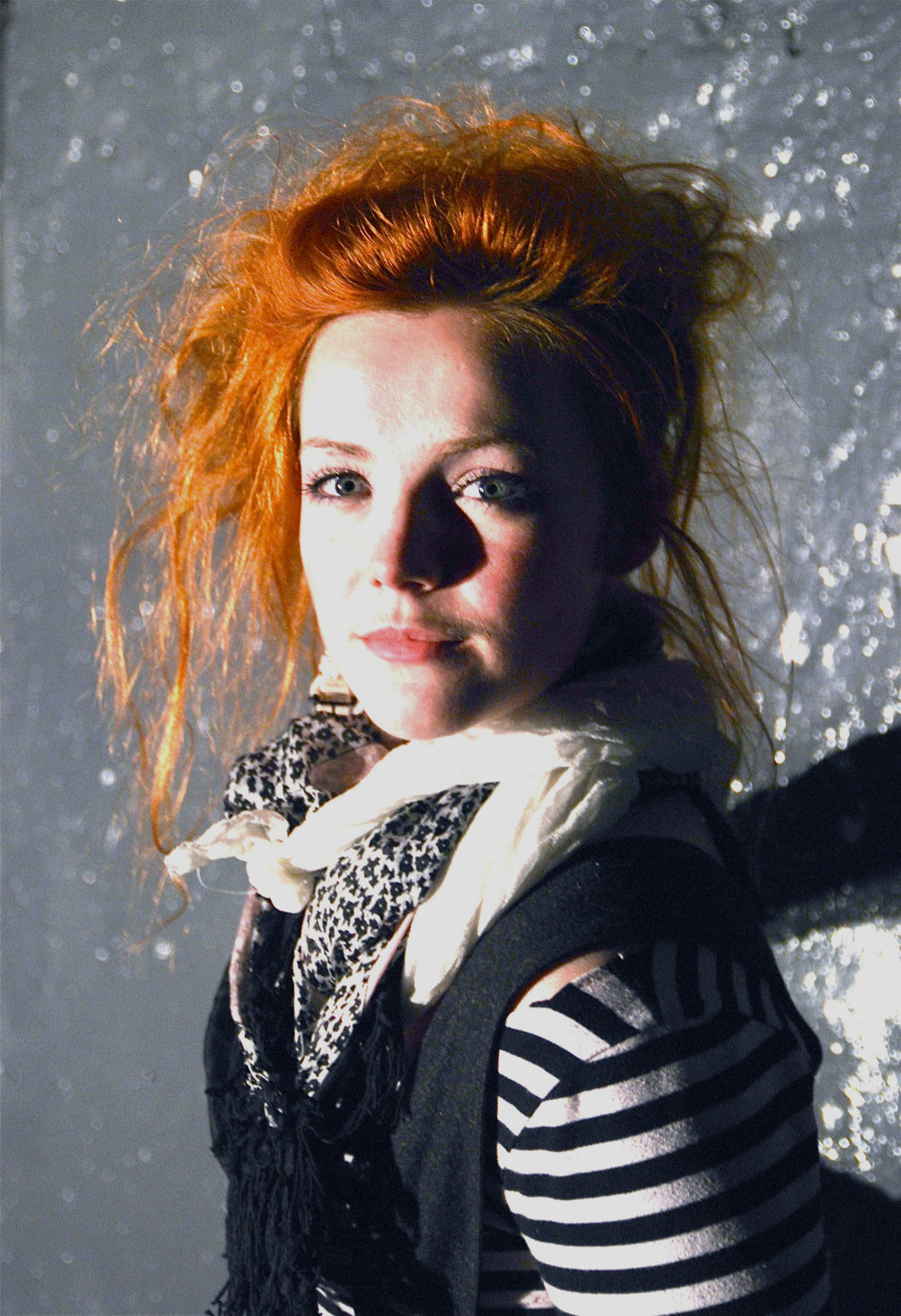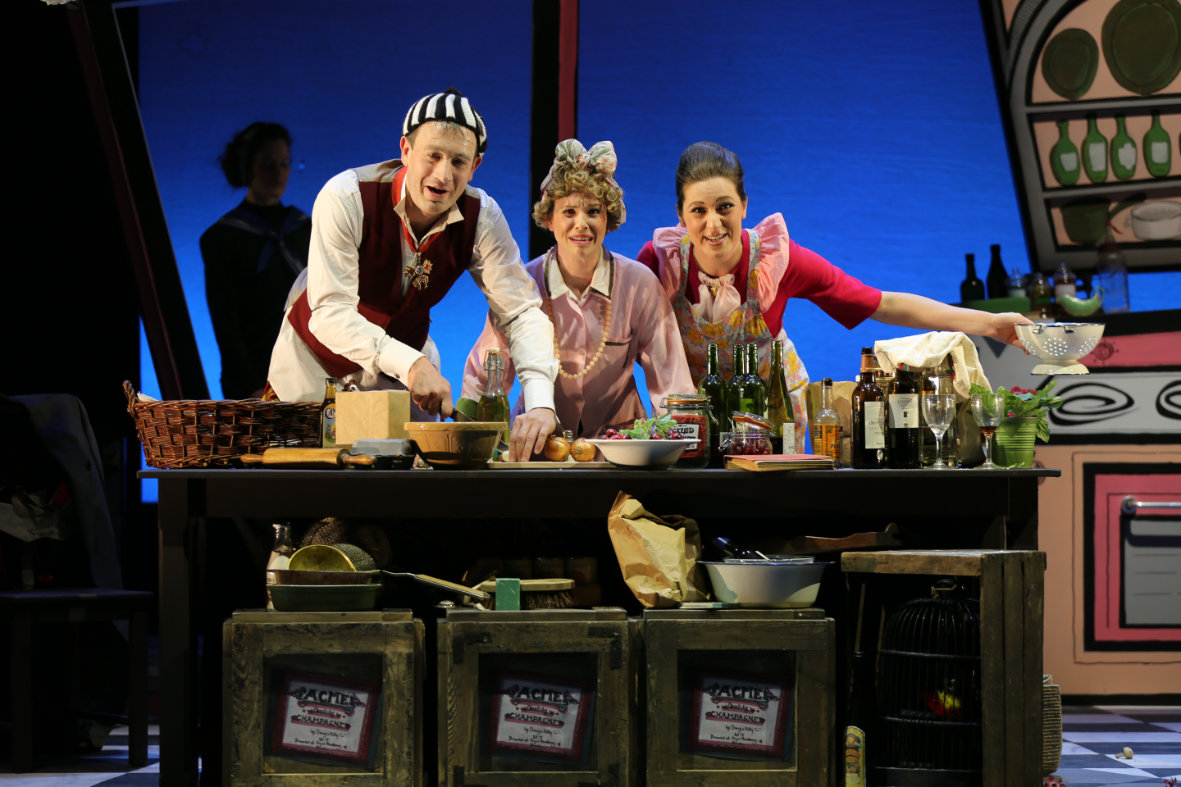A Dinner Engagement and The Bear
John Michael East looks back at two operas at the Royal Academy of Music in May 2015 - Berkeley’s ‘A Dinner Engagement’ and Walton’s ‘The Bear’.
The opera departments of our music colleges offer interesting productions that spice the menu of the commercial companies. They work in their own smaller theatres,1 and are focused on a broadening experience for the students, with a repertoire less restricted by fashion or current public taste. In anything from Monteverdi and Mozart onwards they are able to give a significant emphasis to the most immediate past.
Just in London, and just in the 2015 summer term, we saw Albert Herring at the Royal College of Music, Hans Werner Henze’s Phaedra and Ein Landartz at the Guildhall School of Music, and, at the Royal Academy of Music, William Walton’s The Bear and Lennox Berkeley’s A Dinner Engagement.

In the pre-concert talk Daisy Evans, who directed both operas, spoke about her ideas for a cartoon production concept common to both, and guided us through the novel experience of producing A Dinner Engagement as a mid-Fifties (and already slightly nostalgic) work with 2015 students. She walked us, well-shod, through the practical issues of interpretation, communication, and – a factor too often pushed aside today – the balancing of the respect and restraint due to tradition. She assured us of the love and enthusiasm of the students for their new experiences – which indeed became obvious from the moment the curtain went up.
It is commendable that Royal Academy Opera should mount so carefully these two performances of Berkeley’s one-act opera. There’s quite a lot against it: a dated libretto and scenario from the time of the students’ grandparents, which reflects a social culture, and fear of doing the wrong thing, that is almost ludicrous today. It is also a comedy opera relying on clear diction and split-second timing of gestures – all requiring long and regular rehearsal to make them work. Well, it did all work, and glove-fitted Berkeley’s always precise and clearly-written score.
Both A Dinner Engagement and The Bear were first performed at Aldeburgh – in 1954 and 1967 respectively – and both share the same librettist, Paul Dehn. Of course, contemporary language dates, but also its context disappears. This is particularly true of the Berkeley piece. So it was refreshing to find this production played without any self-conscious hesitation or anachronistic wrong guessing. There was no sending-up, and nothing got in the way of the undated wit in the music.
The Earl of Dunmow, twenty years after being Envoy Extraordinary and Minister Plenipotentiary to the Grand Duchy of Monteblanco, and now down to his last Savings Certificate, is desperate to marry his daughter to money. So Her Royal Moneybags the Grand Duchess of the aforesaid Monteblanco and her son Prince Philipppe are invited to dinner – with the assistance of the hired help, Mrs Kneebone (a stock stage char, complete with verbal genuflections and apologies for entering by the hall and not the kitchen).
Disaster strikes – in the form of burnt toast. Today one would phone for Gourmet Home Delivery, but that would spoil the plot, which hinges on Dunmow’s daughter and young Philippe meeting in the kitchen and discovering a mutual interest in each other. All the characters are typical of the mid-fifties, when pre-war parents were waking up to their post-war children. The real meaning of the opera’s title concerns Engagement rather than Dinner. Dunmow’s daughter Susan is a very modern miss with no time for her parents’ potty plots, or for silly princes. Ah! Bisto! In quite a short scene they are micro-waved into a full romance, which in opera means a love duet. So all is saved, and the opera ends in unexpected quietness.
Unusually for Walton, The Bear seemed musically confused, searching for the right style – trying Battle of Britain mode, Henry V mode, and even Portsmouth Point, without ever getting on track. Yet immediately A Dinner Engagement struck up, after the interval, everything came into focus, thought out with French precision.

But those first four bars of Berkeley! Were we being thrown into Albert Herring, Benjamin Britten’s comedy of just seven years before? Was it an intentional tribute? Of course composers learn from each other how to do things, how to solve problems. The personal and musical relationship between Berkeley and Britten was close, and they enriched each other. More hidden in Britten, this cross-fertilisation occasionally shows out in Berkeley, and most obviously in the recitatives of this opera. Comedy opera has always been open to musical references – and when the Berkeley sets Susan’s lines, ‘O my beloved father’, there wafts through the music, with perfect delicacy, just a momentary sensation of Puccini.
The design and production at the Academy were neither too smart nor too archaic – another tricky balance. And the whole performance was supported, and propelled, from the pit by Gareth Hancock’s conducting and the nimble playing of the Royal Academy Sinfonia.
The cast: Lancelot Nomura (the Earl of Dunmow), Eve Daniell (the Countess), Charlotte Schoeters (their daughter Susan), Katherine Aitken (Mrs Kneebone), Claire Barnett-Jones (Grand Duchess), Gwilyn Bowen (Prince Philippe), Oliver Johnston (Errand Boy), Laura Zigmantaite (a cat).